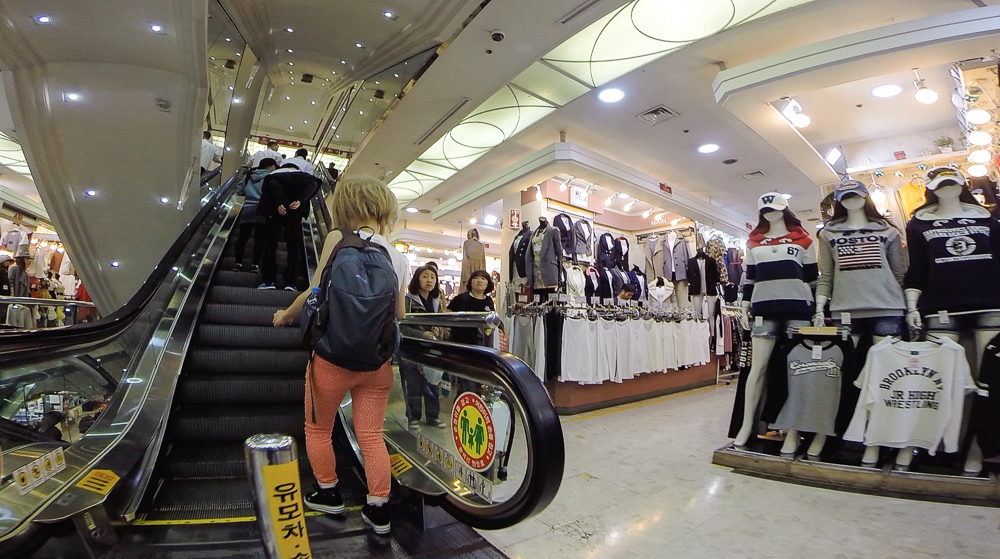- 슈퍼에서 필요한거 있어요?
Shupuhaesuh pilyohanguh issuhyo?
Is there anything you need from the market?
(formal)
To make the phrase INFORMAL, take out the YO (요):
슈퍼에서 필요한거 있어?
Shupuhaesuh pilyohanguh issuh?
Is there anything you need from the market?
(informal)
- Fill in the blank with your desired noun and ask a worker:
________ 어디 있어요?
________ uhdi issuhyo?
Where is ________?
(formal)
간장 어디 있어요?
Ganjang uhdi issuhyo?
Where is the soy sauce?
쌀 어디 있어요?
Ssal uhdi issuhyo?
Where is the rice?
빵 어디 있어요?
Bbang uhdi issuhyo?
Where is the bread?
김 어디 있어요?
Gim uhdi issuhyo?
Where is the seaweed?
이거 어디 있어요?
Eguh uhdi issuhyo?
Where is this?
- 어느게 좋아요?
Uhneugye joayo?
Which one is better?
(formal)
- 이거 얼마예요?
Eguh uhlmayeyo?
How much does this cost?
(formal)
- Just fill in the blank with your preferred food and the weight. Koreans use grams and kilograms in this situation.
FOOD + WEIGHT 주세요.
FOOD + WEIGHT juseyo.
Please give me FOOD + WEIGHT.
(formal)
Examples:
소고기 육백 그램 주세요.
Sogogi yookbek geurem juseyo.
Please give me 600 grams of beef.
장조림 사백 그램 주세요.
Jangjorim sabek geurem juseyo.
Please give me 400 grams of jangjorim.
갈비 이 킬로 주세요.
Galbi ee kiro juseyo.
Please give me 2 kilograms of galbi.
Note: In written form, kilogram is KILLO (킬로). In spoken form, it’s KIRO (키로).
- 어디서 계산하죠?
Uhdisuh gyesanhajyo?
Where do I pay?
(formal)
- 세일 품목 아닌가요?
Ssaeil poommok ahneengayo?
Isn’t that item on sale?
(formal)
- 이건 빼주세요.
Eguhn bbaejuseyo.
Please take this out.
(formal)
- 현금 영수증 필요 하세요?
Hyungeum yongsoojoong pilyo haseyo?
Do you need a cash receipt?
(formal)
- 이거 반품하고 싶어요.
Eguh banpoomhago shipuhyo.
I’d like to return this.
(formal)
Other helpful videos:
Korean Numbers
Korean Sidedishes
Korean BBQ
Directions in Korea
See you on Mondays for more phrase lessons and on KWOW Wednesdays for travel episodes!

























